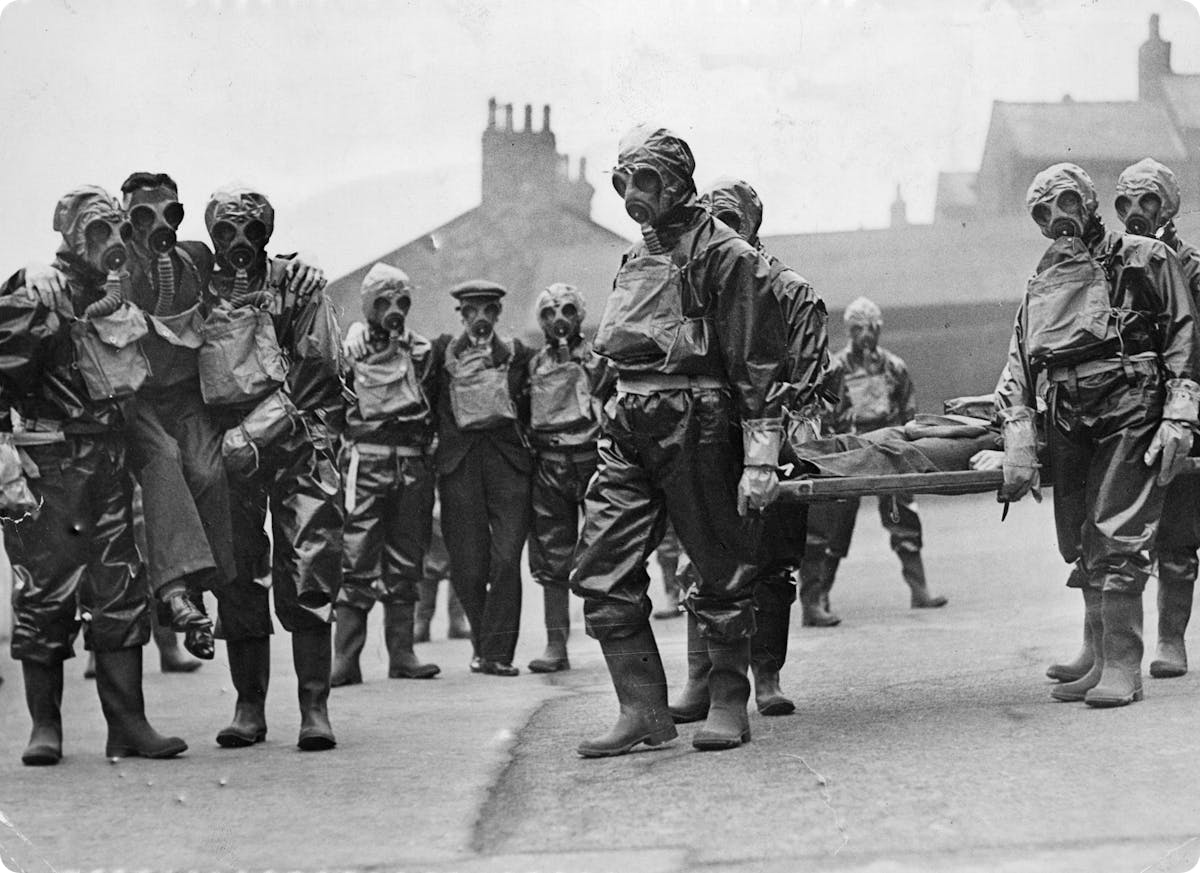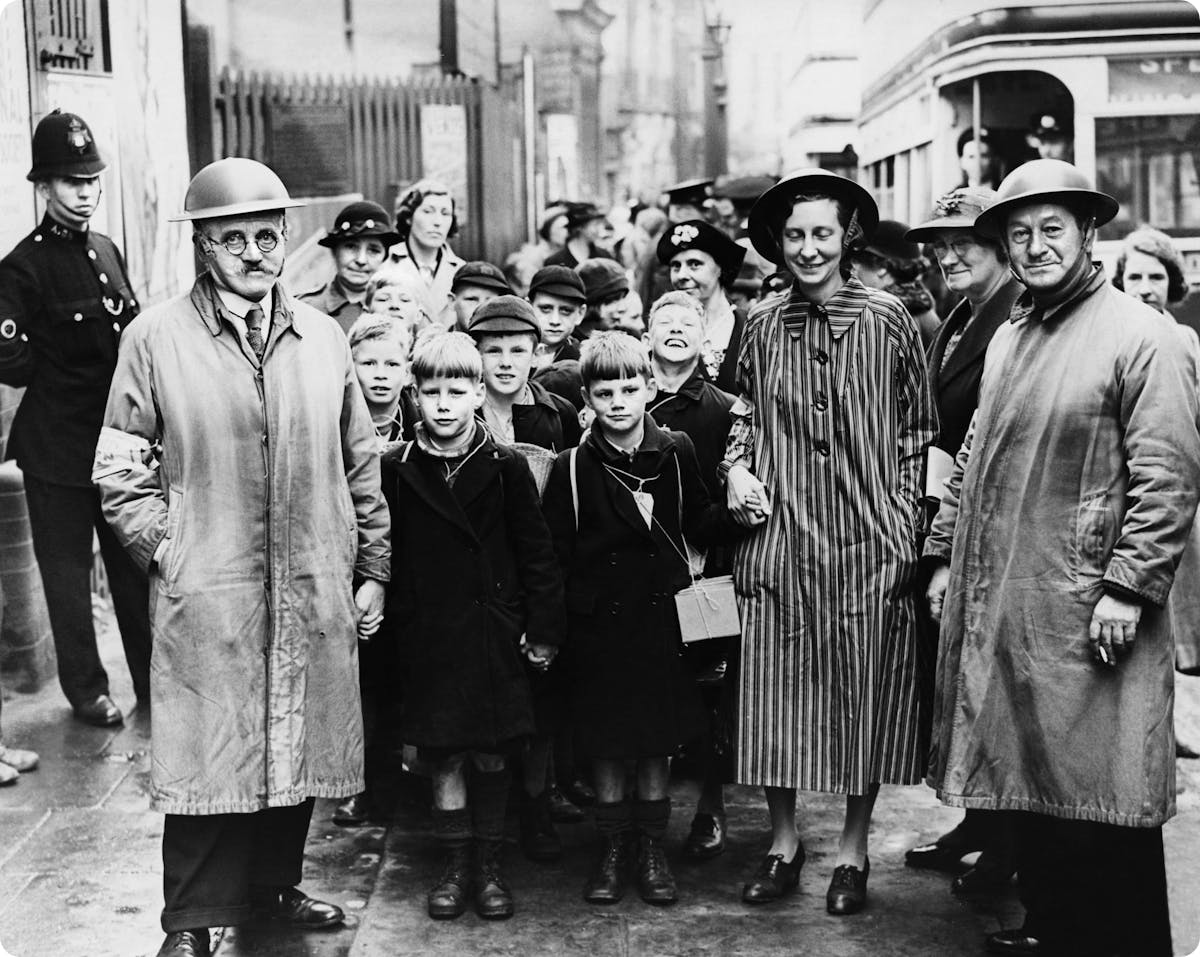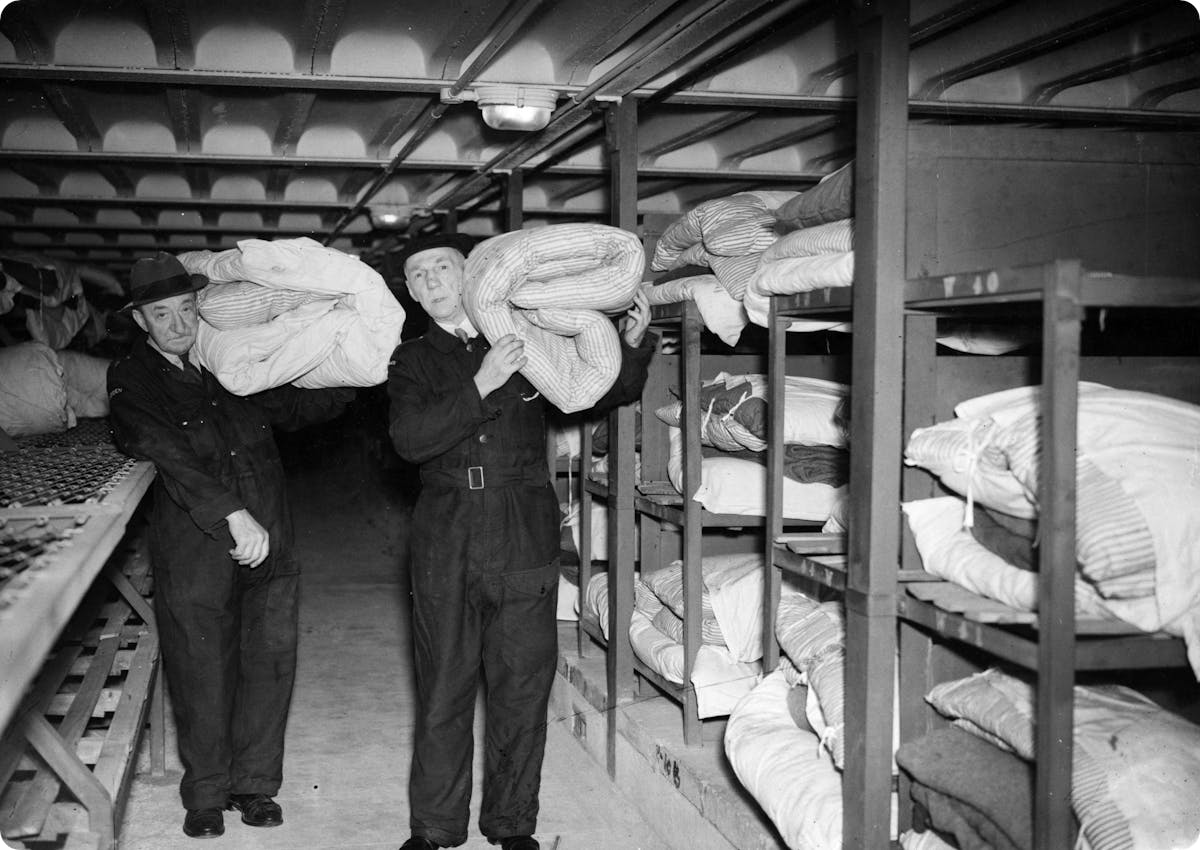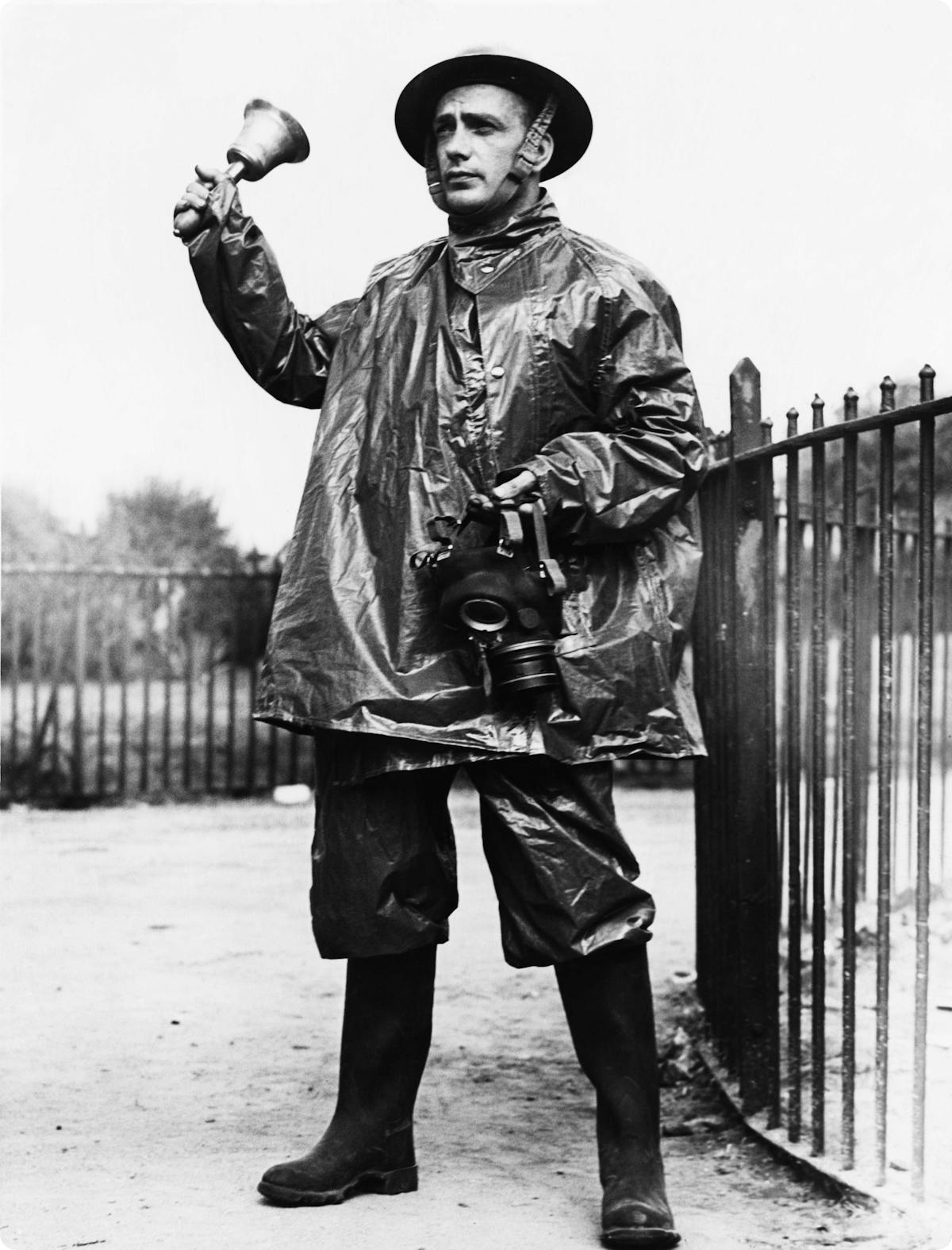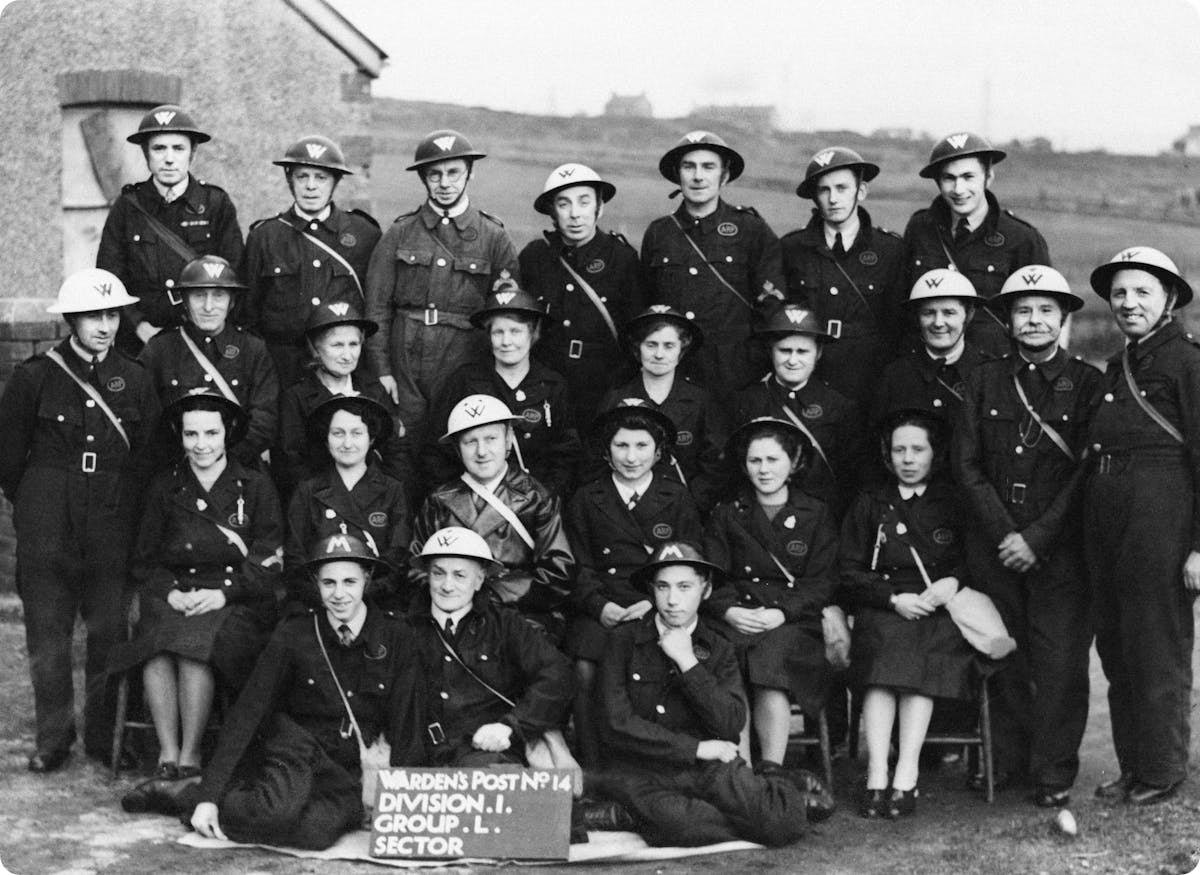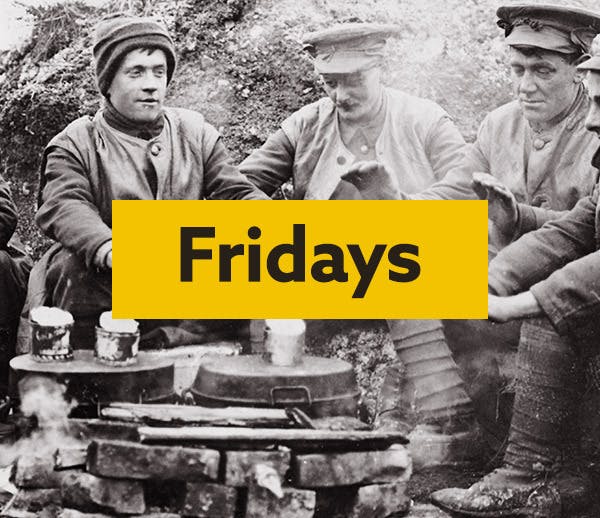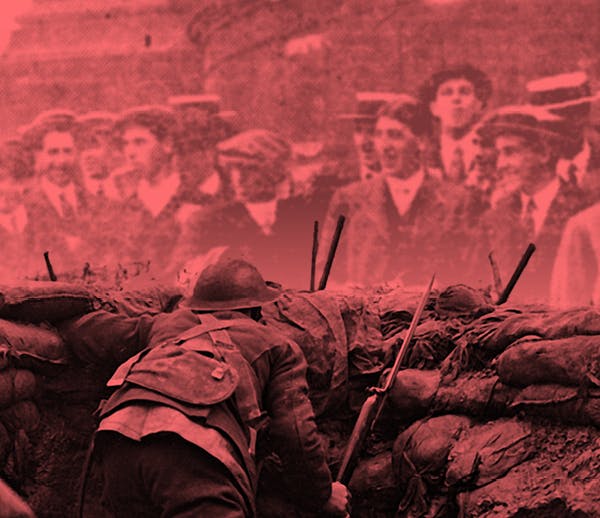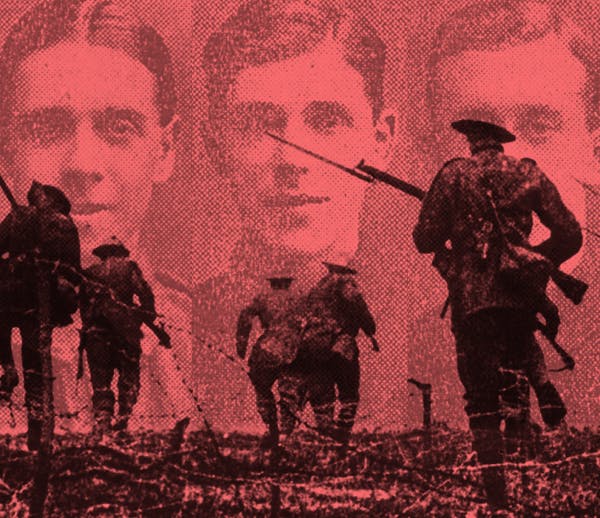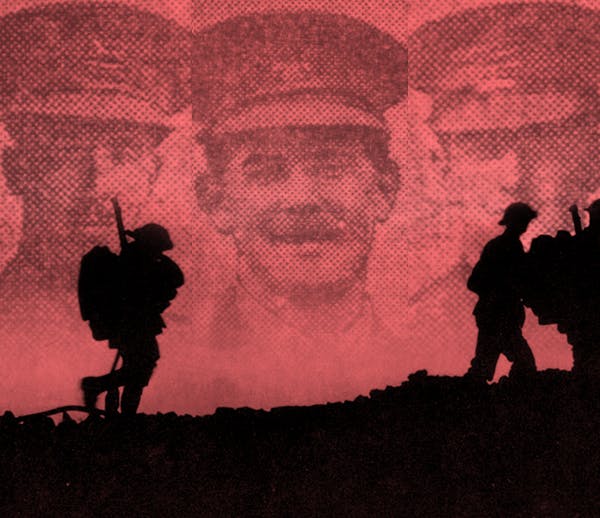The role of Air Raid Wardens in the Second World War
5-6 minute read
By Daisy Goddard | March 27, 2025
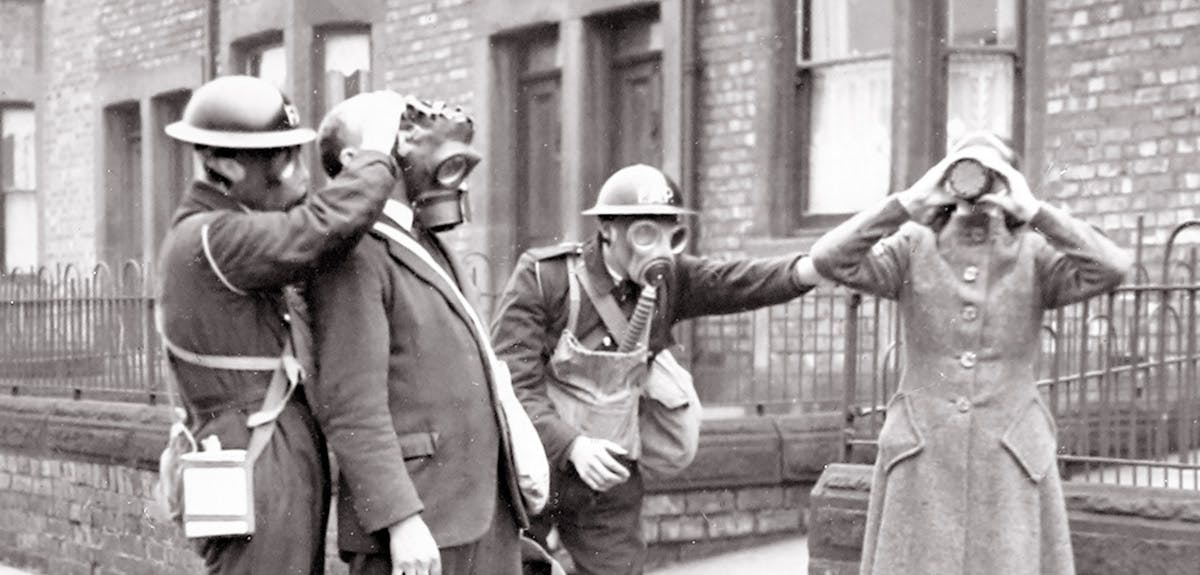
Does your relatives' 1939 Register entry list them as an air raid warden? Here's what it was like to perform this vital role during the Second World War, from the immense challenges they faced to the many jobs they were tasked with.
During the darkest days of the Second World War, as sirens wailed and the drone of enemy bombers filled the night sky, brave volunteers stood on the frontline of civil defence.
Armed not with rifles, but with whistles, helmets, and torches, Britain’s air raid wardens were charged with protecting their fellow citizens from relentless bombing attacks. Acting decisively, they enforced blackout regulations, performed first aid and guided people to safety during air raids.
Find your family, home and town in the 1939 Register
Delve deeper into life on the home front in wartime Britain
By 1941, over 1.4 million men and women had volunteered for this vital role. Their courage and vigilance saved countless lives - and proved that World War Two heroism wasn't confined to the battlefield.
The introduction of Second World War Air Raid Precautions
As tensions in Europe mounted by the late 1930s, the British government realised the pressing need to protect its civilian population from potential air assaults. The Home Office established the Air Raid Precautions Department in 1935. In the following years, its plans were rolled out across the country.
Under the guidance of Sir John Anderson, local councils organised a comprehensive civil defence service, and in December 1937, Air Raid Precautions were introduced.
They took the form of education programmes, the provision of air raid shelters and gas marks, and the introduction of air raid wardens. You can delve deeper into the story of Second World War Air Raid Precautions here.
Air raid wardens
The Air Raid Wardens' Service was created in April 1937 as part of the wider Air Raid Precautions. There were 200,000 volunteers by mid-1938, and by September, the force numbered over 700,000.
It wasn't just men who volunteered as air raid wardens - with the Women's Voluntary Service, established in 1938, thousands of brave women signed up.
Who were air raid wardens?
Air raid wardens were drawn from all walks of life. They were men and women. They were teachers, shopkeepers, retirees, and homemakers. A far cry from trained soldiers, they were everyday citizens who volunteered to keep their neighbours safe.
Once someone put themselves forward for the role of air raid warden, they underwent training sessions that equipped them with the skills necessary to handle emergencies, provide first aid, and maintain public order during air raids. This training turned ordinary folk into the backbone of the civil defence force.
Were air raid wardens paid?
Interestingly, a small number of air raid wardens were employed on a full-time basis, and paid a salary of £3 a week for men, and £2 a week for women.
Most air raid wardens, however, were part-time volunteers who carried out their role alongside their regular jobs. They may have had their salary topped up with a few extra shillings each week, though their work was still largely unpaid. They held down full-time jobs whilst spending their free time volunteering – this was no mean feat, and a truly admirable sacrifice.
Heroes of their communities
In the eyes of the communities they served, wardens became local heroes. They formed strong bonds with the people, offering a reassuring presence during the dark days of the war. Air raid wardens embodied the spirit of resilience and camaraderie. They played an instrumental role in ensuring the safety and morale of the civilian population during World War 2.
What did air raid wardens do during the Second World War and the Blitz?
The duties of air raid wardens were as varied as they were vital.
Patrolling the streets during blackouts, they ensured compliance with regulations designed to keep cities shrouded in darkness, thus reducing the risk of enemy bombers finding their targets. Their presence was a constant reminder of the importance of public safety and vigilance.
During air raids, these wardens sprang into action, guiding civilians to nearby shelters and offering immediate assistance. They coordinated with rescue services to report bomb damage, ensuring swift action was taken to address any dangers. Their quick thinking and decisive actions saved countless lives.
Wardens also conducted regular drills and briefings to inform and prepare neighbourhoods for potential attacks. These exercises were crucial in fostering a sense of readiness and calm among the civilian population. Thanks to the tireless efforts of their local wardens, people knew what to do and where to go.
Beyond their physical duties, wardens played a significant role in maintaining morale. They offered emotional support to those affected by the chaos of war, providing a listening ear and a comforting presence. In the face of adversity, they represented a steadfast pillar of strength and reassurance.
Challenges faced by air raid wardens during the Blitz and beyond
The life of an air raid warden during the Second World War was fraught with challenges and dangers. Working long hours under the constant threat of bombings, these individuals put their lives on the line to protect others.
Wardens often faced significant resource constraints. Limited equipment and supplies made their tasks even more daunting. They had to make do with what little they had, often improvising solutions to tackle the myriad challenges they encountered.
The emotional toll of witnessing destruction and casualties was another immense challenge. Wardens frequently found themselves at the scene of harrowing incidents, where they had to provide first aid and comfort to those affected. The psychological impact of these experiences was profound, yet they soldiered on, driven by a sense of duty.
Enforcing blackout rules and safety measures wasn't always straightforward, either. Wardens sometimes encountered resistance from the public, who struggled to adapt to the strict regulations. Ensuring compliance required diplomacy and perseverance.
From dangerous rescues to first aid: recognising their heroic contributions
The bravery and dedication of air raid wardens during the Second World War did not go unrecognised. Many received awards like the Defence Medal, the George Cross and the George Medal for their exceptional service, acknowledging their selfless contributions to the war effort. Their actions saved lives and provided a sense of security to countless individuals.
Communities fondly remembered their local wardens, who became beloved figures for their unwavering support and dedication. People celebrated their courage and commitment, recognising them as integral members of the wartime community. Their legacy lives on in the stories and memories shared by those who witnessed their heroism firsthand.
